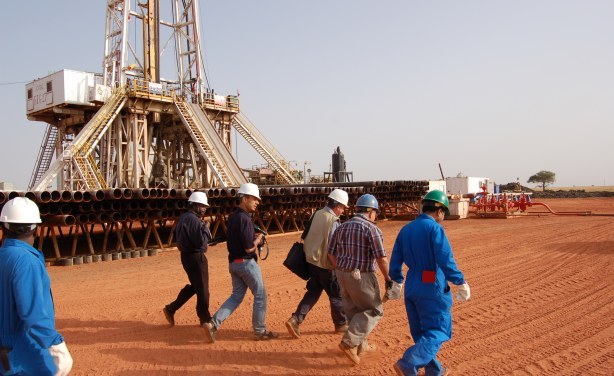Juba — South Sudan has rescheduled plans to resume oil production and exports out of neighbouring Sudan, in order to reach an understanding with Khartoum over security issues, the head of the state-owned Nile Petroleum Corporation (NilePet),Paul Adong, said Sunday.
South Sudan's President Salva Kiir declared on 14 November that his country's oil production will be restarted this week, after nearly a year of suspending it over a dispute with Khartoum on transit fees for exporting the crude through the north's pipelines.
Adong, who did not give a revised date, said preparations to resume pumping Southern crude through Sudan are continuing and have not been suspended despite the postponement. He said that discussions over security arrangements regarding the establishing a demilitarised buffer zone and alleged backing of rebel groups either side of the border were ongoing.
In September the two sides signed a Cooperation Agreement, which will see South Sudan pay between $9.10 and $11 a barrel to export its crude through the north. Juba will also pay $3.08 billion to help Sudan overcome the loss of three quarters of oil production due to Southern secession.
The flagging economies of both nations, since South Sudan separated last year, have made a deal to resolve the oil dispute, which began in January, crucial for the finances of both nations.
South Sudan relied on oil revenues for 98% of its income and Sudan had budgeted for transit fees of over $30 per barrel in its annual budget. South Sudan's pre-shutdown oil production was approximately 350,000 barrels per day (bpd).
However, Sudan has insisted that border security arrangements agreed in the September deal must be finalised before oil exports can resume.
Meetings earlier this month in Juba, chaired by the defense ministers of the two countries to discuss the establishment of previously agreed demilitarized border buffer zone and the ways to end cross border attacks and rebel presence in both sides of border, ended without progress.
Speaking to the Sudanese parliament on 14 November after his return to Khartoum, Sudanese defense minister Abdel-Rahim Mohamed Hussein blamed the South Sudan government for the breakdown of the implementation of the deal.
He accused Juba rejecting his attempts to place the issue of South Sudan's alleged backing of rebels in South Sudan on the meeting's agenda and said his counterpart had refused to hand over the names of citizens northern citizens seeking to join the Southern army (SPLA).
NilePet's Adong told Sudan Tribune that Khartoum had begun to include "completely new demands" in the security deal which his country "did not make a commitment" to during negotiations held in the Ethiopian capital of Addis Ababa.
On 14 November the Sudanese oil minister Awad al-Jaz told a visiting South Sudanese delegation led by the Undersecretary of South Sudan's oil ministry, Machar Aciek Ader Nyang, that implementing the oil accord was contingent upon finalizing a deal on security arrangements.
The two sides discussed technical details for restarting oil flow in a closed session but Al-Jaz stressed the importance of security to provide a conducive environment for oil production.
NilePet's Adong, who was part of a South Sudanese delegation that visited Khartoum last week said that the resumption of oil production has "been rescheduled because [the] Sudanese government wants security arrangements to be concluded first."
In South Kordofan and Blue Nile states, which both border South Sudan rebels – who fought with the SPLA during the civil that resulted in country's partition – have been fighting the Sudanese government since last year.
The SPLA-North claim to control 40% of the border and South Sudan has argued that they should be included in the security. This and Juba's offer to mediate between its war-time allies and the Sudanese government has been given short shrift in Khartoum.
"The reason for rescheduling resumption date for production and export through Sudanese territory is that [the] Sudanese government link[s] the full implementation of the nine agreements with security arrangements. Sudan wants disengagement of SPLM-North and South Sudan to be included. This demand is not provided for in the nine agreements"; said Adong.
He said that security and oil resumption discussions between Juba and Khartoum are ongoing.
via Sudan Tribune

